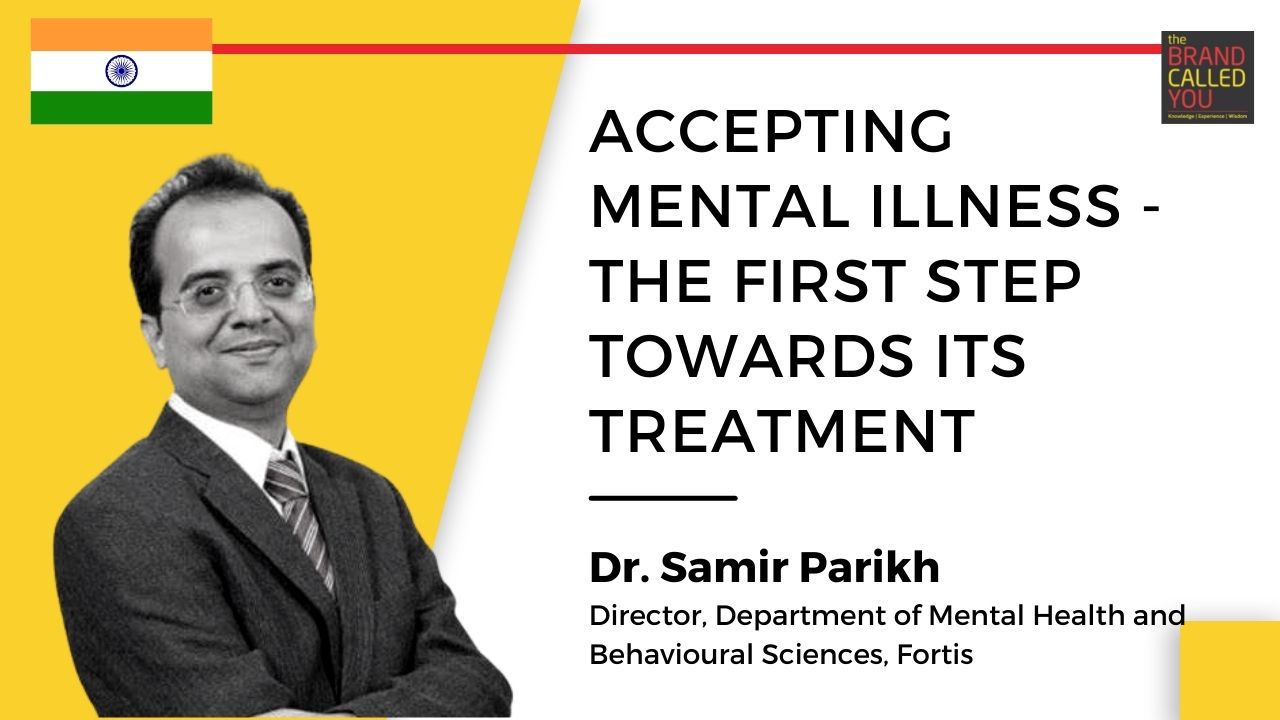Dr. Samir Parikh, Director, Department of Mental Health and Behavioural Sciences, Fortis
Dr. Samir Parikh is an eminent psychiatrist and has played a significant role in enhancing the image and reach of mental health across the country.
Podcast
Podcast: Play in new window | Download
Follow TBCY RSS
Overview
Mental health issues are growing rapidly. Fortunately many people today are taking initiative to normalize having a mental illness in society. But there are still people who are shy or may be afraid to talk about mental illness. Many people who are suffering from a mental health issue do not even know about it.
To obtain a clear understanding of mental illness and its treatment, we have Dr. Samir Parikh with us today.
Dr. Parikh is a renowned mental health expert. He is the Director of the Department of Mental Health and Behavioural Sciences at Fortis Hospital.
Mental health challenges faced by India
Dr. Parikh very precisely tells us that four major Challenges India is facing in the field of mental health are outreach, accessibility, fewer experts, and stigma.
Why do some countries have lesser mental health experts?
Speaking of the number of people having mental health issues, Dr. Parikh gives us a little knowledge of the statistical data of WHO and other organizations. He tells us that 10% of the world’s total health issues are related to psychiatry. He says that some countries have fewer mental health experts because of fewer seats, choice of profession, etc. He adds that the migration of mental health experts from low-income countries to high-income countries is also a reason why low-income countries have fewer mental health experts.
What are the symptoms that can be noticed in a person who might be suffering from depression?
Dr. Parikh suggests that when you have symptoms that cause impairment in your functionality in a consistent pattern is something that needs attention. The cause of impairment could be your thoughts, mood, day-to-day living, relationships, etc. If any of these things is causing impairment one should consider talking to someone.
He adds that the symptoms of depression could be sadness, lack of interest, not enjoying life, sleep appetite changes, hopeless and worthless thoughts, etc. continuing for more than two weeks, etc.
Dr. Parikh suggests going to your family physician should be the first step as sometimes over expertise could also be a problem. The family physician could give you some advice on routine changes or could suggest to you some other doctor based on your condition.
Why are mental health and depression still less talked about in our country?
The real issue is that people who do not have mental health issues do not understand the people who have. They are not suffering from the problem so they won’t understand and term it as either hype or no problem at all. They would themselves become doctors and suggest that you do not need any medication for your illness. This is how the patient gets uncomfortable and tries to keep his problems to himself in the fear of being judged. However, Dr. Parikh suggests that telemedication is a very good solution for a country like ours. He calls it the future of medication when it comes to mental health.
How has the pandemic and lockdown affected the mental health of the younger generation?
Dr. Parikh says that the lockdown has impacted everyone’s life. Prior to COVID lockdown, young adults wanted to work from home and to spend some more time with family. During the lockdown, they felt immense pressure and increased workload. Now that they have adjusted to this life, they don’t want to go out anymore when the unlock is in progress. Lockdown has changed the way of life of young adults. However, he believes that lockdown has even greater effects on the school-going generation and the senior citizens.
About the Fortis National Mental Health Program
Fortis has its branches nationwide. They have their hospitals throughout the country. Fortis hospital used this widespread network to help the people in need. They decided to launch a comprehensive integrated mental health program. They have psychiatrists, clinical psychologists, councilors, and other mental health experts working under this program. They provide solutions and remedies to the people in need. They also have stand-alone hospitals of psychiatry in Gurgaon and they are planning to open more such hospitals. They have integrated counseling in healthcare. They have also done community work under this program. They have written a mental health curriculum and are working with over 10,000 schools free of cost. They also have a 24/7 helpline running in 14 Indian languages. They are working to create awareness about mental health issues.
Profile
Dr. Samir Parikh is an eminent psychiatrist and has played a significant role in enhancing the image and reach of mental health across the country. He completed his MBBS and MD in Psychiatry from Civil Hospital, Ahmedabad, and topped the university in both.
He is the Director of the Department of Mental Health and Behavioral Sciences Department, Fortis National Mental Health Program – one of the few comprehensive multi-city, multi-centric mental healthcare programs in the world, with a team of over 80 experts at 20 centers across Delhi-NCR, Mumbai, Bengaluru, Chennai, Kolkata, Jaipur, Amritsar, Mohali, and Ludhiana. The work done by the department has reached 15 Crore Lives.
About the Fortis National Mental Health Program
The Fortis National Mental Health Program, along with being amongst the largest mental health care providers in India, is one of the only comprehensive multi-city, multi-centric mental health programs in the world with standardized processes and guidelines for intervention, record maintenance, and supervision. The department comprises a multi-disciplinary team of experts, including psychiatry, clinical and counseling psychology, psychodynamic psychotherapy, expressive art therapy, psycho-oncology, health psychology, special education, occupational therapy, and sports psychology. Along with a keen focus on evidence-based clinical work, the department also places the strong impetus on preventive community mental health.


